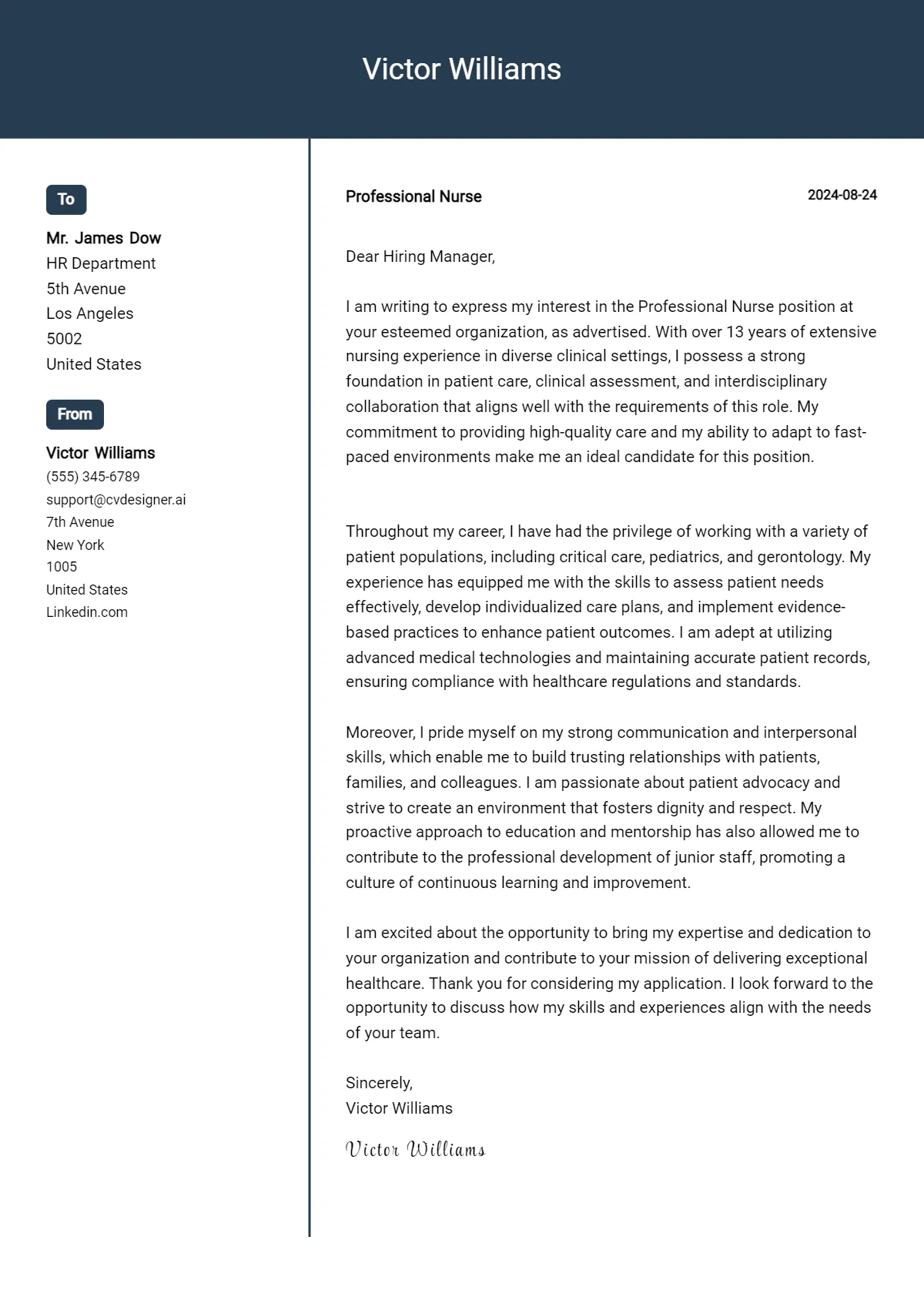Understanding the Nurse Cover Letter
A nurse cover letter serves as your introduction to a potential employer, showcasing your qualifications, skills, and personality. It’s a crucial document that complements your resume, providing a more detailed narrative of your professional experience and career aspirations. Unlike a resume, which provides a summary of your background, a cover letter allows you to personalize your application, demonstrating your genuine interest in the specific role and the healthcare facility. Mastering the art of writing a compelling nurse cover letter is essential for standing out in a competitive job market and securing your dream nursing position. Therefore, it is important to understand the key components and best practices to craft a cover letter that effectively communicates your value as a nurse.
Why a Cover Letter is Crucial for Nurses
In the demanding field of nursing, a well-crafted cover letter can significantly enhance your chances of landing an interview. It provides an opportunity to articulate your unique value proposition, going beyond the basic information presented in your resume. A cover letter allows you to connect your skills and experiences to the specific requirements of the job, demonstrating to the hiring manager that you’ve carefully considered the role and the organization. It also enables you to express your passion for nursing, your commitment to patient care, and your understanding of the healthcare facility’s mission and values. This personalization can set you apart from other applicants and make a lasting impression. A strong cover letter shows professionalism, attention to detail, and a genuine interest in the opportunity, all of which are highly valued by employers.
Key Components of a Nurse Cover Letter
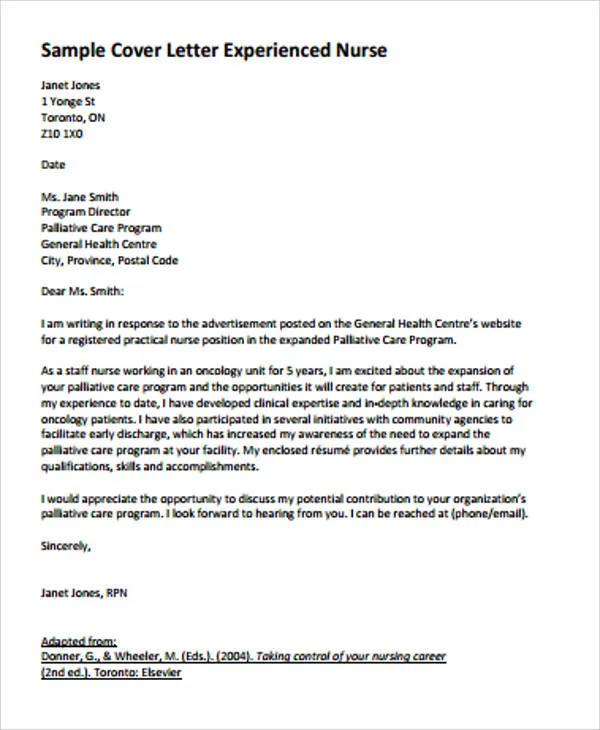
A comprehensive nurse cover letter comprises several essential components that work together to create a compelling narrative. These components are carefully structured to provide the hiring manager with a clear understanding of your qualifications and suitability for the role. Begin with a professional header that includes your contact information and the date. Then, address the hiring manager directly using a proper salutation. The body of your letter should be divided into three key paragraphs focusing on your interest in the role, highlighting your skills and experiences, and expressing your career goals. Finally, end your letter with a strong closing, expressing gratitude and offering a follow-up. Each part is carefully crafted to deliver a consistent and persuasive message.
Header Section Essentials
The header of your nurse cover letter is the first thing a hiring manager sees, so it must be professional and accurate. Include your full name, address, phone number, and email address. Ensure your email address is professional and free of any unprofessional nicknames or unnecessary characters. The date should be placed below your contact information, indicating when the letter was written. Additionally, if you know the name of the hiring manager or the department, include their name and title below the date. This attention to detail sets a positive tone and demonstrates your commitment to professionalism. The header should be clean, easy to read, and visually appealing, reflecting your attention to detail and organization skills, which are essential qualities in nursing.
Contact Information Best Practices
Providing accurate and up-to-date contact information is critical. Double-check your phone number and email address for any errors. Your email address should be professional, using a combination of your first and last names. Avoid using informal or outdated email addresses. If you are applying for a position in a specific department, address the cover letter to the hiring manager of that department. This shows you’ve taken the time to research and understand the organization. Include the date and the recipient’s contact information in the header for a complete and professional look. Your header is the first impression; make sure it represents your professional self.
Salutation: Addressing the Hiring Manager
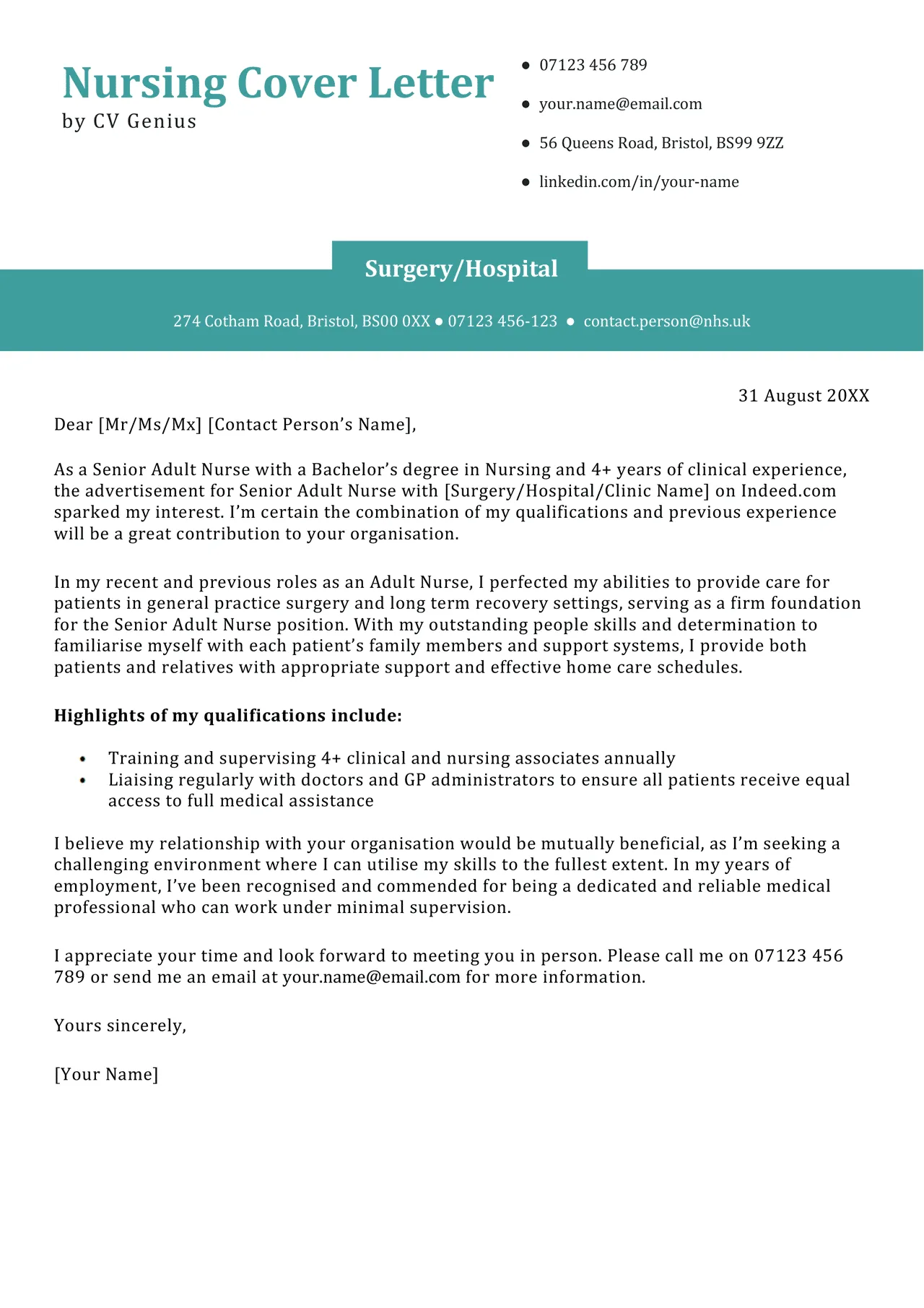
The salutation sets the tone for your cover letter. If possible, address the hiring manager by name. This shows you’ve done your research and are genuinely interested in the role. Use a formal salutation like “Dear Mr./Ms./Mx. [Last Name].” If you are unsure of the hiring manager’s name, you can use a more general salutation like “Dear Hiring Manager” or “Dear [Department Name] Team.” Avoid generic salutations like “To Whom It May Concern” or “Dear Sir/Madam,” as they can make your letter seem impersonal. Always be respectful and professional in your salutation, setting the stage for a positive and engaging letter. This attention to detail demonstrates your ability to communicate professionally, which is a critical skill for nurses.
Body Paragraph 1: Grab Their Attention
The first paragraph of your cover letter should immediately capture the hiring manager’s attention. Start by clearly stating the position you’re applying for and where you saw the job posting. Then, briefly highlight your key skills and experiences that align with the job requirements. Express your enthusiasm for the opportunity and the healthcare facility. This is your chance to make a strong first impression and make the reader want to continue reading. Show that you have done your homework on the company and clearly state why you are interested in the role and what makes you stand out. Demonstrate your knowledge of the facility and your ability to bring value from the get-go.
Highlighting Your Skills and Experience
The main body of your cover letter is where you showcase your nursing skills and experiences. Select the most relevant skills and experiences from your resume and expand on them. Use specific examples to illustrate how you’ve demonstrated these skills in past roles. Emphasize accomplishments rather than simply listing responsibilities. For instance, instead of saying “Administered medications,” say “Administered medications to over 50 patients daily, ensuring accuracy and adherence to protocols.” This approach helps the hiring manager visualize your capabilities and understand the value you would bring to their team. Use the STAR method (Situation, Task, Action, Result) to structure your examples, providing a clear and concise narrative of your achievements.
Quantifying Achievements with Data
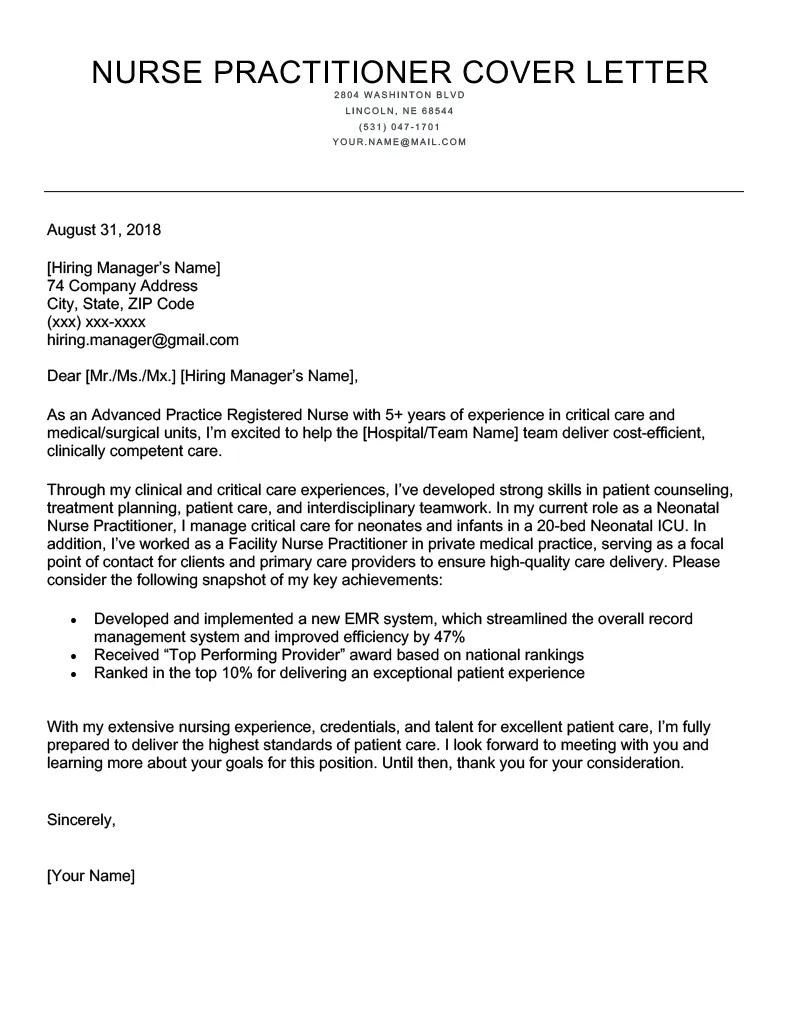
To make your accomplishments more impactful, quantify them whenever possible. Use data, numbers, and statistics to demonstrate your impact. Instead of saying “Improved patient care,” say “Improved patient satisfaction scores by 15% through implementing a new communication strategy.” Quantifying your achievements adds credibility to your claims and allows the hiring manager to understand the scope of your impact. Include percentages, numbers of patients, or specific outcomes to demonstrate your effectiveness. This data-driven approach reinforces your professional expertise and makes your cover letter more persuasive. Use metrics to showcase the value you have brought to previous employers and how that translates to the current job requirements.
Tailoring Your Letter to the Job
Always tailor your cover letter to each job application. Do not use a generic cover letter. Carefully review the job description and identify the key skills and experiences the employer is seeking. Then, highlight the skills and experiences that match those requirements. Use keywords from the job description throughout your letter to demonstrate that you understand the role and have the necessary qualifications. Show that you have done your research on the organization and are genuinely interested in the specific position. Tailoring your letter shows your attention to detail and your ability to align your skills with the organization’s needs.
Body Paragraph 2: Show Your Passion
In the second paragraph, demonstrate your passion for nursing and patient care. Share what motivates you to be a nurse and what you enjoy about the profession. Relate your experiences to the specific needs of the role or the healthcare facility. Highlight your commitment to providing high-quality care and explain how your values align with the organization’s mission. This is where you show your personality and personality and enthusiasm. Avoid generic statements and instead, share specific anecdotes that show why you are passionate about your work. Demonstrate your enthusiasm for the role and the healthcare facility.
Demonstrating Knowledge of the Facility
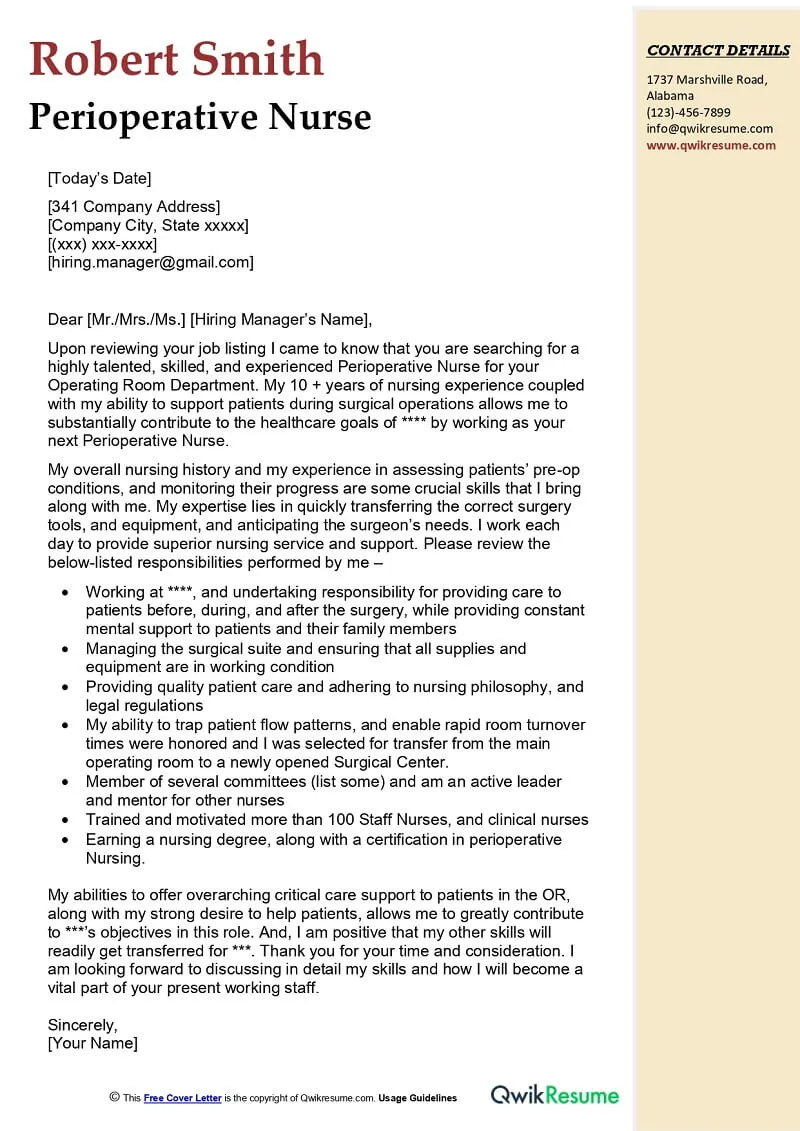
Demonstrate that you’ve researched the healthcare facility. Mention the facility’s mission, values, or recent achievements. Show how your skills and experience align with the facility’s goals. Avoid generic statements; show that you are interested in the facility and the specific role. This also means highlighting aspects of the facility that resonate with you, such as a specific department or program. Understanding the organization and expressing interest in its mission increases your chances of being considered seriously. Showing that you have taken the time to learn about the organization will impress the hiring manager.
Expressing Your Career Goals
Briefly mention your career goals and how the role fits into your professional development. Align your goals with the opportunities offered by the healthcare facility. Show that you are ambitious and want to grow in your career. The aim is to showcase how this position provides you with opportunities for professional growth and learning. Indicate how the role aligns with your aspirations and what you hope to achieve. This is also the place to talk about long-term plans.
Body Paragraph 3: Call to Action
The third paragraph should include a clear call to action, such as expressing your interest in an interview. Reiterate your qualifications and enthusiasm for the role. Keep it brief and to the point. Make it easy for the hiring manager to take the next step. Provide a clear direction and make it easy for the reader to take action. Express your enthusiasm for the position and reiterate your key qualifications. End with a clear and concise statement that encourages the hiring manager to contact you.
Expressing Gratitude and Offering Follow-up
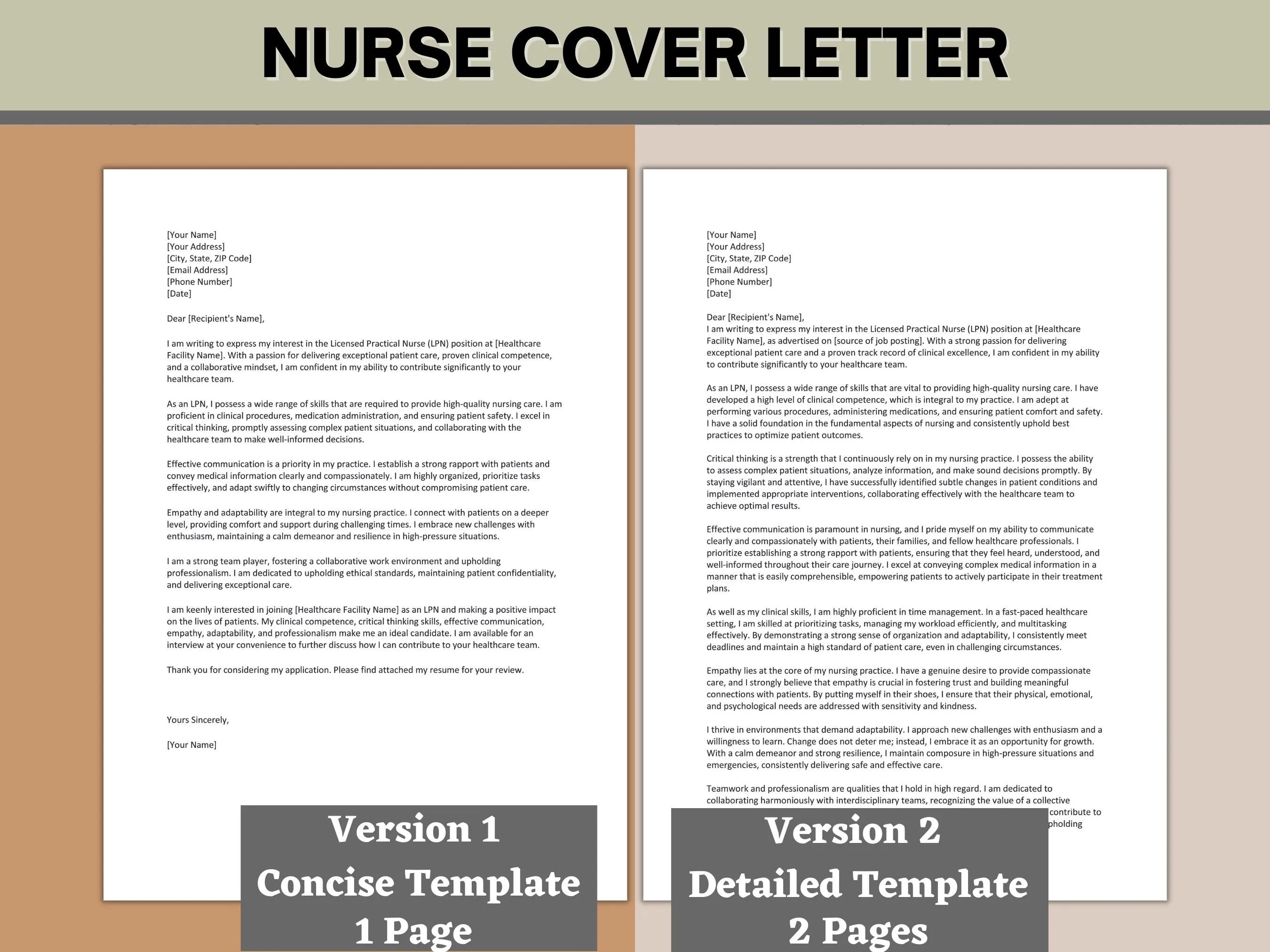
Always express your gratitude for the hiring manager’s time and consideration. Thank them for reviewing your application. Offer to provide additional information or answer any questions they may have. State your availability for an interview. Make it easy for the hiring manager to contact you by reiterating your contact information. Finish your letter with a professional closing such as “Sincerely” or “Respectfully.” Expressing gratitude and offering a follow-up shows professionalism and leaves a positive impression. Thank them for their time and consideration and reiterate your availability for an interview. Be sure to sign the letter if submitting a physical copy.
Closing and Signature
End your cover letter with a professional closing and your signature. Use a professional closing such as “Sincerely,” “Respectfully,” or “Best regards.” Leave space for your handwritten signature if you’re printing and mailing the letter. Type your full name below your signature. Ensure that your signature is legible and reflects your professional image. Your signature concludes your letter, so make sure it’s neat and professional. For digital submissions, you can type your name and consider adding a digital signature if you have one. This detail is essential to show professionalism.
Common Mistakes to Avoid
There are several common mistakes that can undermine your cover letter and negatively impact your chances of getting hired. Being aware of these mistakes can help you avoid them and create a more effective cover letter. Proofread your cover letter carefully and make sure you eliminate any mistakes. Review your work and use external resources to help get the best results. Avoid these common mistakes to ensure your cover letter is the best representation of your skills and expertise.
Typos and Grammatical Errors
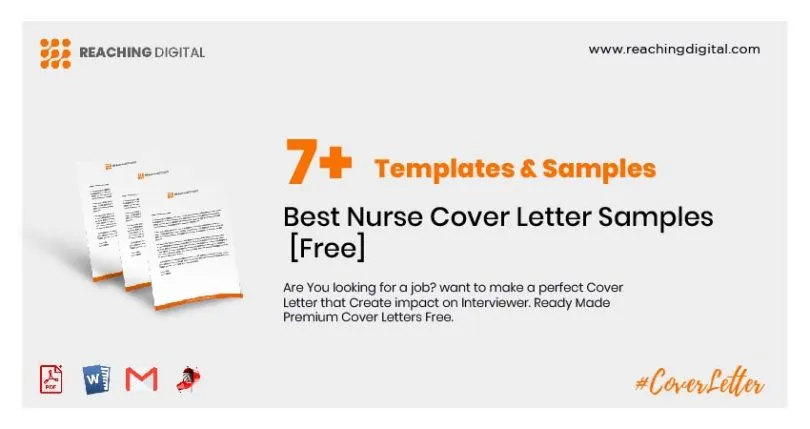
Typos and grammatical errors can make you appear unprofessional and careless. Proofread your cover letter carefully, ideally more than once. Use spell-check and grammar-check tools, but don’t rely on them entirely. Ask a friend, family member, or career counselor to review your letter for errors. Errors, especially those related to spelling and grammar, can damage your credibility and make it seem like you are not detail-oriented. A cover letter containing these types of errors can lead to your application being discarded, so make sure to proofread thoroughly. Always proofread your work carefully.
Generic Content and Lack of Personalization
A generic cover letter that is not tailored to the specific job and the healthcare facility will fail to impress. Avoid using the same cover letter for every job application. Tailor your letter to each job, highlighting the skills and experiences that are most relevant to the position. Do your research on the healthcare facility and show that you are genuinely interested in the organization. The lack of personalization shows a lack of interest and may lead to your application being rejected, as generic content indicates that you are sending mass applications instead of targeting specific opportunities.
Formatting and Presentation Tips
The formatting and presentation of your cover letter are important for readability and professionalism. Make sure your letter is clean, well-organized, and easy to read. Use proper formatting to help highlight your skills. Be sure to make use of the format provided for you. The visual appeal of your letter is important, as a well-formatted cover letter conveys professionalism and attention to detail. Make sure to choose your formatting choices to get the best results.
Font Choices and Readability
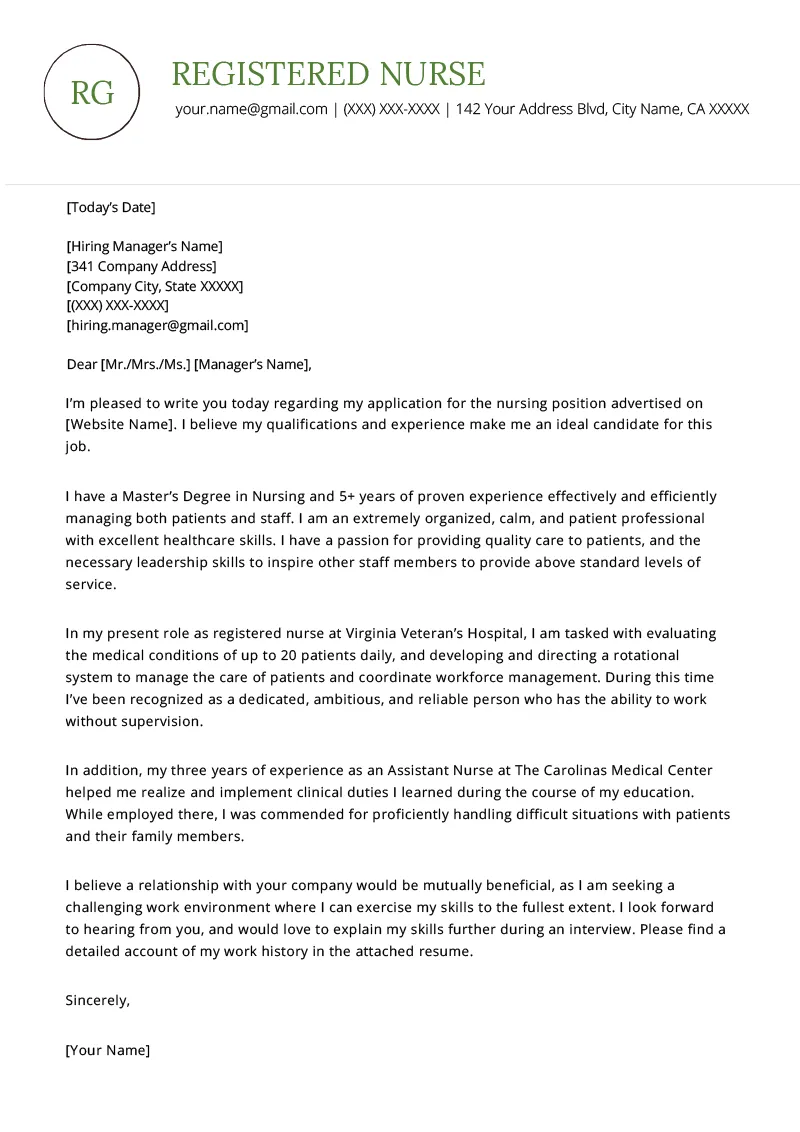
Choose a professional and easy-to-read font, such as Times New Roman, Arial, or Calibri. Use a font size of 10-12 points. Avoid using overly decorative or distracting fonts. Ensure that your letter is easy to read at a glance. Ensure that your letter is easy to read, with sufficient spacing between lines and paragraphs. Use a font that is common and easy to read. The choice of font is essential, because it is essential that the document is as easy to read as possible. Readability is also about using appropriate line spacing.
Length and Structure
Keep your cover letter concise and to the point, ideally no more than one page. Use a clear and logical structure, with a header, salutation, body paragraphs, closing, and signature. Use headings and bullet points to break up large blocks of text and make your letter easier to scan. Ensure that your cover letter is well-structured and easy to navigate, using proper formatting and organization to convey your message. The general idea is to make it easy for the hiring manager to process the information. The key is to showcase your skills.
Nurse Cover Letter Examples
Reviewing examples of nurse cover letters can provide valuable insight and inspiration. Use these samples as a guide, adapting them to your own experience and the specific job requirements. Adapt the general advice from the samples and examples into your own. Nurse cover letter samples can help you understand what an effective cover letter looks like and how to showcase your skills and experience effectively. Use these examples as a starting point. Make sure to customize each letter to the specific job and your own unique qualifications. Keep in mind that there are different approaches for different roles and specialties.
Entry-Level Nurse Cover Letter Sample
An entry-level nurse cover letter should focus on your education, clinical experiences, and any relevant skills gained during your nursing program. Highlight any volunteer work or clinical rotations that demonstrate your commitment to patient care. Showcase your enthusiasm for the nursing profession and your willingness to learn and grow. Focus on any coursework, clinical rotations, or volunteer experiences that show your qualifications. It should convey your desire to learn and grow within the profession. An entry-level nurse should demonstrate a strong foundation in nursing principles and a willingness to start their career. Highlight any relevant coursework, clinical rotations, and volunteer experiences.
Experienced Nurse Cover Letter Sample
An experienced nurse cover letter should focus on your years of experience, specialized skills, and accomplishments. Quantify your achievements with data and metrics whenever possible. Mention any certifications, awards, or specializations you have obtained. Show your expertise and your ability to lead and mentor other nurses. If you have worked in different specialties, make sure to adapt the letter to the requirements of the role. This is where you should highlight your specializations and achievements. An experienced nurse’s cover letter should highlight their expertise and accomplishments. Make sure to tailor the letter to the specific job and highlight any relevant certifications or awards. The key is to show how you have grown in your career.
Tips for Specific Nursing Specialties
Different nursing specialties require different skill sets and experiences. Tailor your cover letter to the specific requirements of the specialty you are applying for. Highlight your experience in the relevant area, and emphasize any certifications or training that are specific to that specialty. Different nursing specialties require different skills and experiences. Make sure to adapt your cover letter to the specific requirements of the job and to showcase your relevant experience and qualifications. Always align your qualifications with the job requirements.
How to Tailor Your Letter to Different Roles
Tailoring your cover letter to different roles is essential for demonstrating your suitability for each position. Carefully review the job description and identify the key skills and qualifications the employer is seeking. Highlight the skills and experiences that align with the job requirements. Customize your letter for each job application. Highlight the skills and experiences that match the job description. Your goal is to highlight the skills and experience that match the job description. Always align your letter with the job description and customize it to demonstrate your suitability.
Additional Resources
There are numerous resources available to help you write a compelling nurse cover letter. Take advantage of these resources to enhance your application. By using these tools, you can greatly improve the quality of your cover letter and increase your chances of landing an interview. Make the most of all of these available tools.
Online Cover Letter Builders
Online cover letter builders can simplify the process of writing a cover letter. These tools often provide templates, prompts, and suggestions to help you create a well-structured and effective letter. Using an online builder can save you time and ensure that you include all the essential elements. You will get access to templates and suggestions, so you can focus on your content. Consider using these tools to help you get the best results. Use these resources and focus on making your application the best it can be.
Professional Editing Services
Consider using professional editing services to review and refine your cover letter. Editors can provide feedback on grammar, style, and content. A professional editor can offer an objective perspective and ensure that your letter is polished and error-free. A professional editor can provide valuable feedback on your cover letter. Professional editing services are a worthwhile investment and can help you get the best results. Hiring professionals is a worthwhile investment. Getting professional help is essential for getting the best results.
